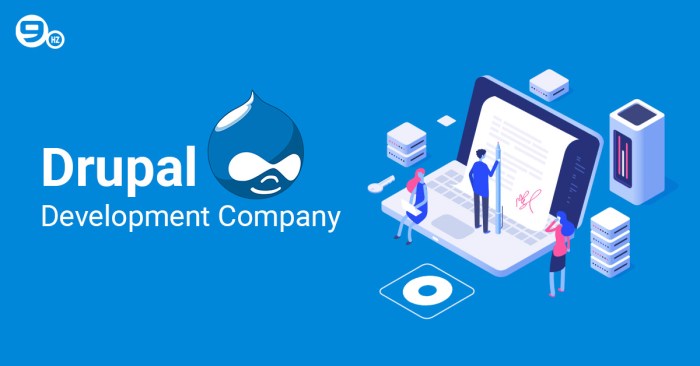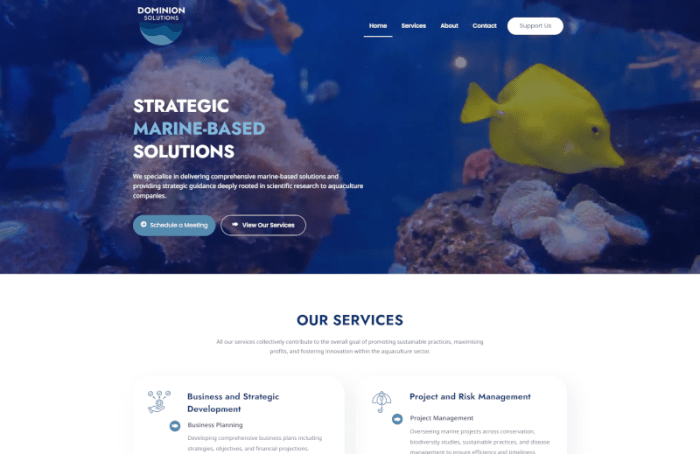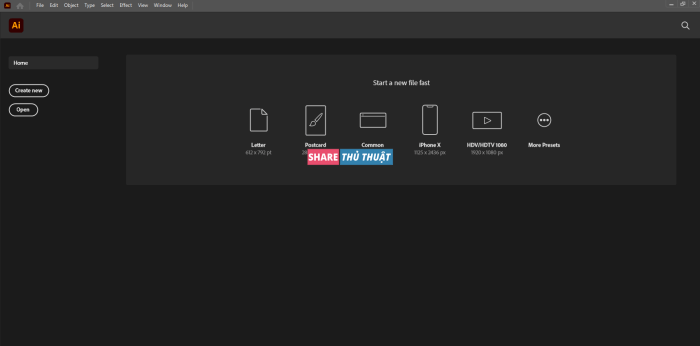WordPress Website Development Company Your Guide
WordPress Website Development Company: Need a website that’s both beautiful and functional? Building a successful online presence starts with choosing the right partner. This guide will walk you through everything you need to know about finding and working with a WordPress website development company, from understanding your needs to launching your dream site and beyond. We’ll cover the services they offer, the development process, how to choose the best company for you, and even some common challenges and future trends.
We’ll explore the different types of businesses that thrive with WordPress, the various services offered by development companies (think custom themes, plugin integration, and e-commerce solutions!), and the different pricing models to help you budget effectively. We’ll also delve into the step-by-step development process, from initial consultation to ongoing maintenance, and offer a checklist to help you evaluate potential companies. Finally, we’ll look at successful WordPress websites and discuss the future of this dynamic platform.
Defining the Target Audience for WordPress Website Development Companies
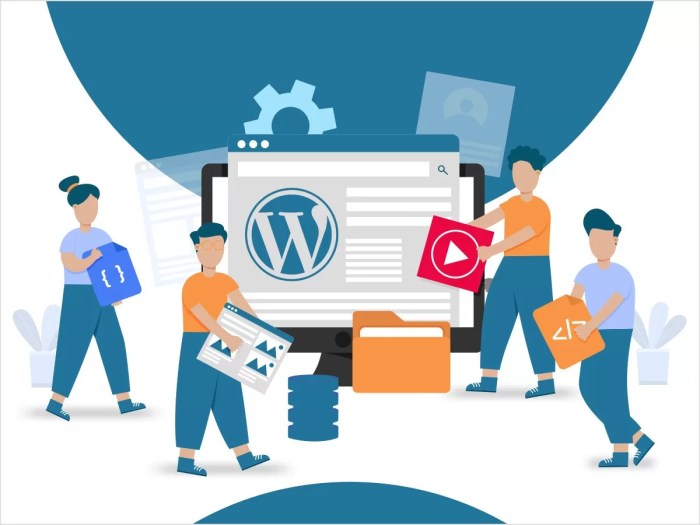
Source: skynetindia.info
WordPress, with its user-friendly interface and extensive plugin ecosystem, caters to a broad range of businesses. Understanding which businesses benefit most from professional WordPress development is crucial for targeted marketing and efficient resource allocation. This section will articulate the key characteristics of ideal clients and the diverse types of businesses that leverage WordPress for their online presence.
Businesses that would most benefit from hiring a WordPress website development company typically need more than just a simple, off-the-shelf website solution. They require a website that is customized to their specific needs, integrates seamlessly with other business tools, and can scale with their growth. This often involves complex functionalities, custom designs, and ongoing maintenance and support.
Characteristics of Ideal Clients
Businesses seeking professional WordPress development usually prioritize functionality, scalability, and a professional online image. They recognize the value of a well-designed, high-performing website and are willing to invest in a solution that meets their long-term business objectives. They often have a clear understanding of their target audience and marketing goals and are actively seeking ways to improve their online presence and drive conversions. These businesses value expertise and are prepared to collaborate with developers to create a website that effectively represents their brand and achieves their business objectives.
Types of Businesses Using WordPress
A wide array of businesses utilize WordPress to power their websites. From small startups to large enterprises, the platform’s versatility allows for diverse applications. The common thread is the need for a website that is flexible, manageable, and easily adaptable to evolving business needs.
Business Types and Website Requirements
| Business Type | Website Needs | Budget Expectations | Typical Features |
|---|---|---|---|
| Small E-commerce Store (e.g., handmade crafts) | Online store functionality, secure payment gateway integration, inventory management, basic | $1,000 – $5,000 | Shopping cart, product catalog, secure checkout, basic contact form, blog |
| Real Estate Agency | Property listings, interactive map integration, advanced search filters, high-quality image galleries | $5,000 – $15,000 | Property search, detailed property descriptions, virtual tours (integration with 3rd party services), contact forms, agent profiles |
| Corporate Business (e.g., consulting firm) | Professional design, clear communication of services, strong call-to-action, lead generation forms | $10,000 – $30,000+ | Custom design, about us section, service pages, case studies, blog, contact forms, lead magnets |
| Non-profit Organization | Donation forms, event calendar, volunteer signup, and a clear mission statement | $2,000 – $10,000 | Donation integration (e.g., PayPal), event calendar, volunteer application forms, blog, contact information, mission statement |
Services Offered by WordPress Website Development Companies
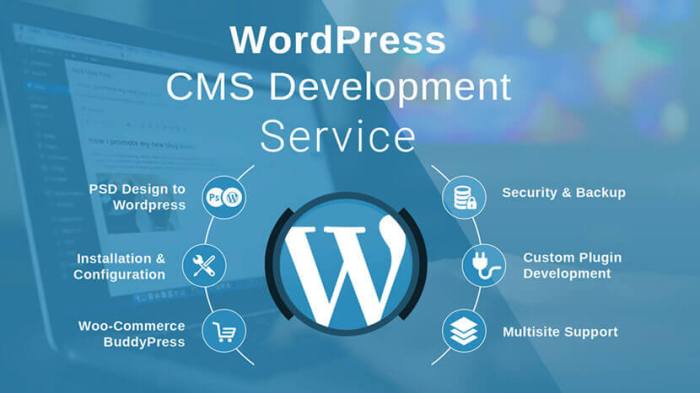
Source: rgbwebtech.com
WordPress website development companies offer a wide range of services designed to help businesses establish a strong online presence. These services go beyond simply building a website; they encompass strategic planning, design, development, and ongoing maintenance to ensure your site performs optimally and achieves your goals. Understanding these services is crucial for choosing the right company and package for your needs.
The core services offered are interconnected and often customized to meet specific client requirements. A successful website is a holistic project, requiring expertise across various areas.
Core Website Development Services
The foundational services form the bedrock of any successful WordPress website. These services lay the groundwork for a functional and aesthetically pleasing online presence.
- Custom Theme Development: This involves creating a unique website design tailored to your brand and business needs. It goes beyond using pre-built themes, offering complete control over the look and feel of your site, ensuring a distinct online identity.
- Plugin Integration: WordPress plugins extend the functionality of your website. Experienced developers integrate essential plugins for features like contact forms, optimization, security enhancements, and e-commerce capabilities. Careful selection and integration are key to performance and security.
- E-commerce Solutions: For businesses selling products or services online, setting up a robust e-commerce platform is essential. This involves integrating shopping carts, payment gateways, inventory management, and secure checkout processes. This requires expertise in both WordPress and e-commerce best practices.
- Website Migration: Moving an existing website to WordPress or transferring it from one hosting provider to another requires careful planning and execution. This ensures minimal downtime and data integrity during the process.
- Custom Plugin Development: If your business has unique requirements not met by existing plugins, custom plugin development provides a tailored solution. This requires advanced programming skills and a deep understanding of WordPress architecture.
Pricing Models for WordPress Website Development
WordPress development companies employ various pricing models, each with its advantages and disadvantages. Understanding these models helps you choose the option that best aligns with your budget and project scope.
- Hourly Rates: This model charges a fixed rate per hour of work. It offers flexibility for projects with evolving scopes, but can be less predictable in terms of total cost.
- Project-Based Fees: A fixed price is agreed upon upfront for a defined scope of work. This provides budget certainty but requires a clear project charter to avoid scope creep.
- Retainer Agreements: A monthly fee provides ongoing maintenance, updates, and support. This is ideal for businesses needing consistent website management and technical assistance.
Sample Service Package
This example demonstrates different service packages with varying levels of features and associated costs. Remember, these are estimates, and actual costs will depend on project complexity and specific requirements.
| Package | Features | Price |
|---|---|---|
| Basic | Basic theme customization, essential plugins, content upload | $1,000 |
| Standard | Custom theme design, plugin integration, optimization, e-commerce setup (basic) | $3,000 |
| Premium | Custom theme design, extensive plugin integration, advanced e-commerce setup (advanced), ongoing maintenance (1 month) | $7,000 |
The WordPress Development Process
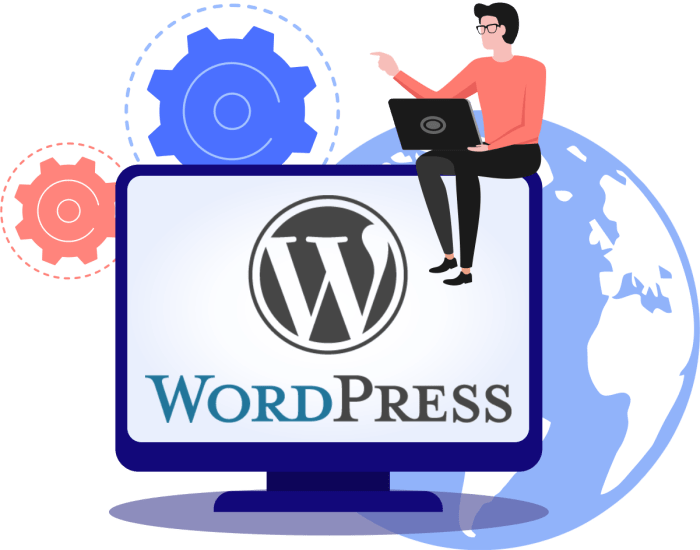
Source: movinnza. in
Building a successful WordPress website involves a collaborative process between you and our expert team. We understand that creating a website can feel overwhelming, so we’ve designed a clear and straightforward approach to ensure a smooth and efficient experience from start to finish. This detailed breakdown will guide you through each stage of development.
Our process prioritizes open communication and transparency. We believe that keeping you informed every step of the way is crucial for a successful project. Expect regular updates and opportunities to provide feedback throughout the development cycle.
Project Initiation and Planning
This initial phase lays the groundwork for your website’s success. We’ll begin by discussing your vision, goals, and target audience. This involves a thorough needs assessment, defining the website’s purpose, functionality, and desired aesthetic. We’ll also discuss your budget and timeline expectations, ensuring realistic project parameters. Key deliverables include a detailed project scope document outlining all agreed-upon features and a preliminary timeline.
Design and Development
Once the planning phase is complete, our design team will create mockups and wireframes, visually representing your website’s structure and layout. This allows you to see and provide feedback on the overall design before we begin the actual development. This stage also involves the development of the website’s core functionality, including content management system (CMS) setup, theme selection or customization, and plugin integration. We use agile development methodologies, allowing for flexibility and iterative improvements throughout this process. Regular progress reports and feedback sessions are integral to this stage.
Content Population and Review
With the website’s structure and functionality in place, it’s time to populate it with your content. This includes text, images, and any other media you want to include. We can assist with content migration from your existing website, if applicable. This phase involves a thorough review process, ensuring accuracy, consistency, and adherence to your brand guidelines.
Testing and Quality Assurance
Before launch, we conduct rigorous testing to ensure the website functions flawlessly across different browsers and devices. This includes functional testing, usability testing, and security testing. We address any bugs or issues identified during this phase, guaranteeing a high-quality, user-friendly experience. This process ensures your website is optimized for performance and security.
Launch and Deployment
Once the testing phase is complete and you’ve approved the final version, we’ll deploy your website to your chosen hosting environment. This typically involves transferring all website files and databases to the server. We’ll provide you with training on how to manage your website’s content.
Post-Launch Support and Maintenance
Our commitment extends beyond the launch date. We offer ongoing support and maintenance packages to ensure your website remains secure, up-to-date, and performs optimally. This includes regular security updates, backups, and performance monitoring. We’re also available to address any issues or questions that may arise after launch.
Evaluating WordPress Website Development Companies: WordPress Website Development Company
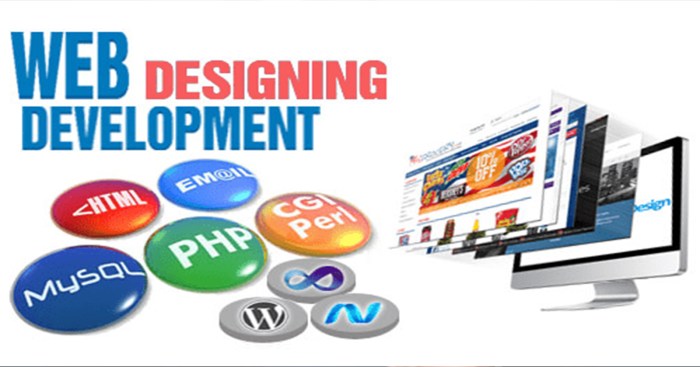
Source: winzdigital.com
Choosing the right WordPress development company is crucial for the success of your online project. A poorly chosen company can lead to delays, budget overruns, and a website that doesn’t meet your needs. This section will guide you through the process of evaluating potential partners, ensuring you make an informed decision.
Criteria for Selecting a Reputable WordPress Development Company
Several key factors determine a company’s reliability and skill. These factors should be carefully considered before committing. Looking beyond just price is essential for long-term success. Consider the company’s experience, their communication style, and their approach to project management. A strong portfolio and positive client testimonials are also crucial indicators of a company’s capabilities.
Importance of Client Testimonials, Portfolio, and Company Experience
Client testimonials offer invaluable insights into a company’s work ethic and the quality of its services. Reading reviews provides a realistic perspective, highlighting both positive and negative aspects of their work. A strong portfolio showcases the company’s capabilities and the diversity of projects they’ve completed. Look for projects similar to your own to gauge their expertise in your specific area. A company’s experience, measured in years of operation and the number of successful projects, directly correlates with its skill and reliability. A longer track record generally suggests greater expertise and problem-solving capabilities.
Checklist of Questions for Potential WordPress Development Companies
Before engaging a company, a thorough vetting process is necessary. This involves asking specific questions to understand their processes, expertise, and commitment to your project. This ensures alignment on expectations and prevents misunderstandings later in the development process. It is important to discuss project timelines, budget, communication strategies, and post-launch support.
- What is your experience with projects similar to mine?
- Can you provide case studies or examples of your previous work?
- What is your project management process?
- How will you ensure clear and consistent communication throughout the project?
- What is your approach to testing and quality assurance?
- What kind of post-launch support do you offer?
- What is your pricing structure and payment schedule?
- What is your timeline for completing the project?
- What are your policies regarding revisions and changes?
- What security measures do you implement to protect my website?
Illustrating Successful WordPress Websites
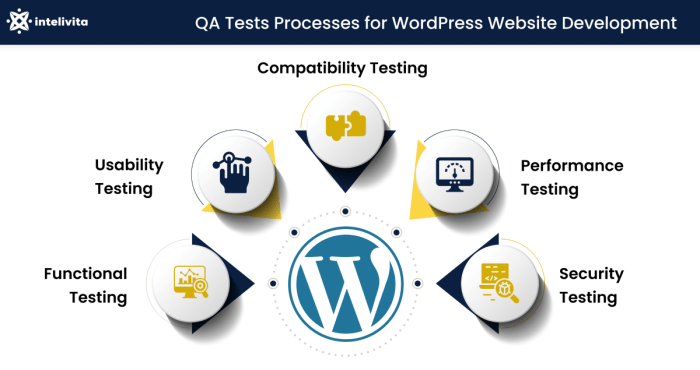
Source: intelivita.com
WordPress’s flexibility and extensive plugin ecosystem allow for the creation of diverse and highly effective websites across various industries. Examining successful examples reveals how strategic design choices, coupled with powerful functionality, contribute to achieving business goals. The following case studies showcase websites that leverage WordPress to effectively engage their target audiences and drive results.
WordPress Website Example: The New York Times, WordPress website development company
The New York Times, a global leader in news and information, utilizes a custom-built WordPress theme. Their website is designed to cater to a broad audience, from casual readers to dedicated news consumers. The design prioritizes clear, concise information presentation, with easily navigable sections for different news categories. The functionality includes advanced search capabilities, personalized news feeds, and interactive features like polls and comment sections. The site’s clean layout and emphasis on readability enhance user experience, allowing visitors to quickly find the information they need. The success of the New York Times’ website is attributable to its effective use of WordPress to deliver a seamless and engaging news experience, thereby strengthening brand loyalty and driving subscriptions.
WordPress Website Example: eCommerce Website for a Handmade Jewelry Business
Many small businesses successfully leverage WordPress’s eCommerce capabilities. Consider a hypothetical handcrafted jewelry business. Their website, built using WooCommerce (a popular WordPress plugin), features high-quality product photography, detailed descriptions, and secure online payment processing. The target audience is women aged 25-55 interested in unique, high-quality jewelry. The website’s design is visually appealing, showcasing the craftsmanship of the jewelry through professional photography and a clean, modern aesthetic. Key features include customer reviews, easy navigation, and a user-friendly checkout process. This website’s success stems from its ability to translate the brand’s artistic vision into a compelling online shopping experience, leading to increased sales and brand recognition. The smooth checkout process and positive customer reviews foster trust and repeat business.
WordPress Website Example: A Corporate Portfolio Website for an Architectural Firm
Architectural firms often utilize WordPress to showcase their projects and build their brand. Imagine a firm specializing in sustainable design. Their website, built using a visually stunning theme, highlights their portfolio through high-resolution images and detailed project descriptions. The target audience is potential clients (businesses and individuals) seeking architects with expertise in sustainable building practices. The design emphasizes visual appeal, showcasing the firm’s creativity and attention to detail. Key features include a responsive design (adapting seamlessly to different screen sizes), a contact form for inquiries, and integration with social media platforms. The website’s success is due to its ability to effectively communicate the firm’s expertise and design philosophy, generating leads and building brand credibility. The clean design and easy navigation allow potential clients to easily browse the portfolio and learn more about the firm’s capabilities.
Common Challenges in WordPress Website Development
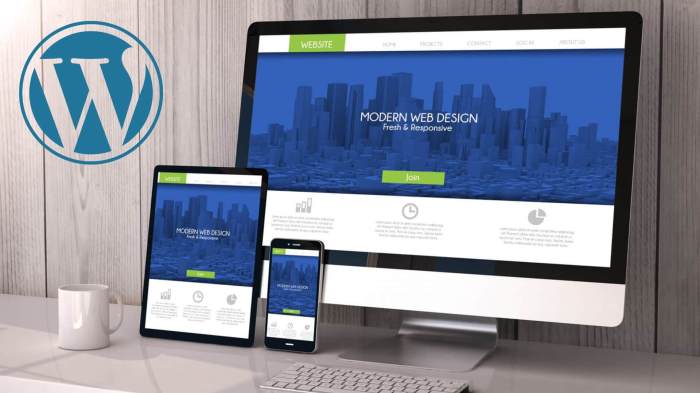
Source: aerobusinesssolutions.com
Building a successful WordPress website involves navigating several potential hurdles. Understanding these challenges beforehand allows for proactive planning and mitigation, leading to a smoother development process and a higher-quality final product. Ignoring these potential problems can lead to delays, increased costs, and a less-than-optimal user experience.
Plugin Conflicts
Plugin conflicts are a frequent source of frustration in WordPress development. Different plugins might rely on the same resources or functionalities, leading to unexpected errors, broken features, or even website crashes. For example, two plugins designed to optimize images might interfere with each other, causing display issues or slow loading times. This can manifest as blank pages, malfunctioning forms, or a general instability of the site.
| Challenge | Solution |
|---|---|
| Conflicting plugins can cause errors or broken functionality. | Thoroughly research plugins before installation, checking reviews and compatibility. Activate plugins one at a time to isolate conflicts. Use a plugin conflict detection tool to identify problematic plugins. Regularly update plugins to the latest versions. |
| Plugins are slowing down website performance. | Deactivate unnecessary plugins. Use a caching plugin to improve loading speeds. Optimize images and other media files. Consider using lighter-weight plugins with similar functionalities. |
Security Vulnerabilities
WordPress, while generally secure, is susceptible to security breaches if not properly maintained. Outdated plugins, themes, or the core WordPress software itself can create vulnerabilities that hackers can exploit. This can range from minor inconveniences like spam comments to serious issues like data breaches or complete website takeover. A compromised website can lead to financial losses, reputational damage, and legal liabilities.
| Challenge | Solution |
|---|---|
| Outdated software creates security vulnerabilities. | Regularly update WordPress core, themes, and plugins. Use a strong, unique password for the administrative account. Implement two-factor authentication for enhanced security. |
| Security breaches resulting in data loss or website compromise. | Install a reputable security plugin. Regularly back up your website data. Monitor website activity for suspicious behavior. Use a web application firewall (WAF) to protect against malicious attacks. |
Design Limitations
While WordPress offers a high degree of customization, certain design limitations can arise, especially when working with pre-built themes. Modifying a theme’s structure to achieve a specific design vision can be challenging, potentially requiring extensive coding knowledge. This can be especially problematic when trying to implement complex layouts or unique design elements. For instance, trying to integrate a highly specific custom animation might require significant custom coding.
| Challenge | Solution |
|---|---|
| Difficulty achieving a specific design with a pre-built theme. | Carefully choose a theme that closely matches the desired design. Consider using a page builder plugin for greater design flexibility. Hire a WordPress developer with expertise in theme customization. |
| Limited design flexibility with certain themes. | Explore themes that offer extensive customization options. Consider using a child theme to modify the parent theme without losing customizations during updates. |
Future Trends in WordPress Website Development
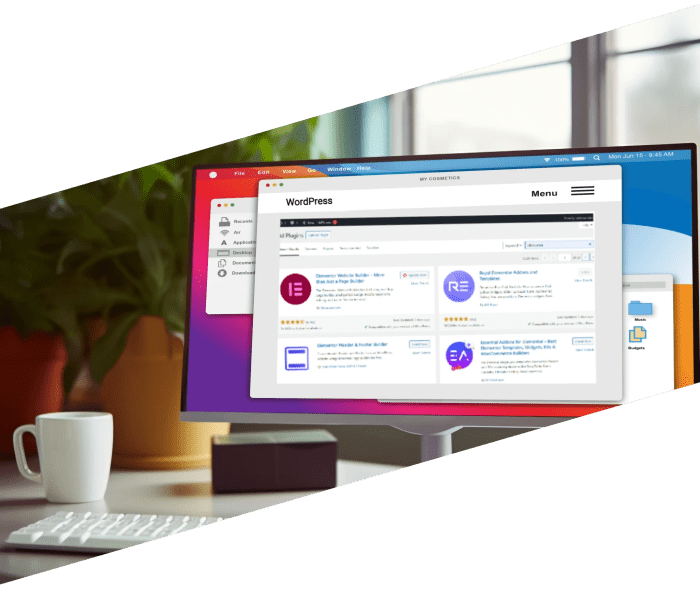
Source: oribentech.com
The world of WordPress website development is constantly evolving, driven by technological advancements and changing user expectations. Understanding emerging trends is crucial for businesses and developers alike to stay competitive and deliver cutting-edge web experiences. This section explores some key trends shaping the future of WordPress.
Several significant advancements are poised to redefine how we build and interact with WordPress websites. These changes are not just incremental improvements; they represent fundamental shifts in architecture, functionality, and security. The impact on the industry will be widespread, influencing everything from development processes to the overall user experience.
Headless WordPress
Headless WordPress decouples the content management system (CMS) from the presentation layer. Instead of relying on WordPress themes to directly render content, a headless approach uses the WordPress backend solely for content creation and management. The frontend, however, is built separately using technologies like React, Vue.js, or Angular, allowing for greater flexibility and customization. This allows for a more agile development process, enabling faster content updates and improved performance. Companies like Netflix and Spotify utilize headless architectures for their websites, showcasing the scalability and adaptability they provide. The impact is a more streamlined workflow for developers and a more engaging experience for users due to optimized performance and personalized content delivery.
AI Integration in WordPress
Artificial intelligence is rapidly transforming various aspects of website development. In the context of WordPress, AI is being integrated to enhance various functionalities, including content creation, optimization, and user experience personalization. AI-powered tools can automate tasks such as image optimization, content summarization, and even the generation of basic website copy. For example, imagine a plugin that automatically suggests relevant suggestions based on the content being created, significantly improving efforts. The potential impact includes increased efficiency for developers and enhanced user engagement through personalized experiences. This will lead to a more dynamic and responsive web experience tailored to individual user preferences.
Enhanced Security Measures
With the increasing sophistication of cyber threats, robust security measures are paramount for WordPress websites. Future trends point towards more proactive and intelligent security solutions. This includes advancements in authentication methods, improved vulnerability detection systems, and AI-powered threat prevention tools. For example, we can anticipate the development of plugins that leverage machine learning to identify and neutralize malicious attacks in real-time, before they can cause significant damage. The industry impact is crucial; improved security will protect businesses from data breaches and financial losses, fostering trust and user confidence.
Timeline of WordPress Development (2013-2023 and Beyond)
The following timeline illustrates key advancements in WordPress development over the past decade and projects future trends:
| Year | Significant Development | Impact |
|---|---|---|
| 2013 | Gutenberg editor (initially released as a plugin) | Marked a shift towards a more block-based content editing experience. |
| 2018 | Full Gutenberg editor integration in WordPress core | Revolutionized content creation within WordPress. |
| 2020-Present | Increased focus on headless WordPress and API development | Enabled greater flexibility and integration with other technologies. |
| 2023-2025 (Predicted) | Wider adoption of AI-powered tools and enhanced security features | Improved efficiency, personalization, and security for WordPress websites. |
| 2026-2030 (Predicted) | More sophisticated integration of Web3 technologies (e.g., blockchain) | Potentially revolutionizing content ownership, monetization, and user interaction. |
Wrap-Up
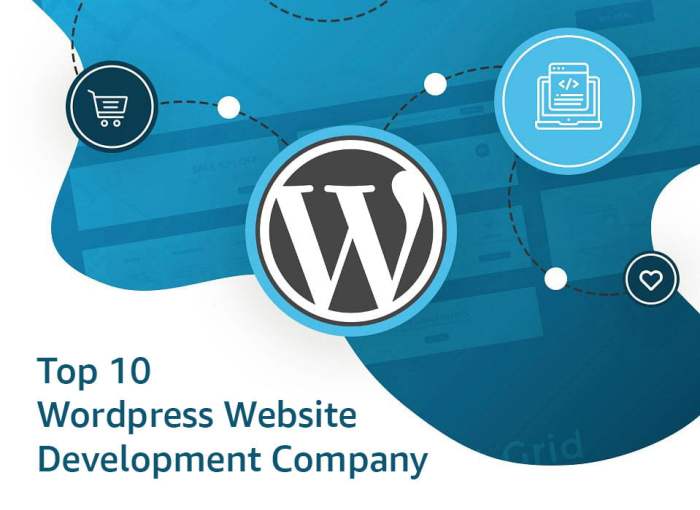
Source: smarter.co
Creating a successful WordPress website is a collaborative journey. By understanding your business needs, choosing a skilled development company, and managing expectations throughout the process, you can build a website that drives results. Remember to carefully evaluate potential partners, ask the right questions, and leverage the power of WordPress to achieve your online goals. This guide has equipped you with the knowledge to navigate the world of WordPress website development, confidently embarking on your digital transformation.
